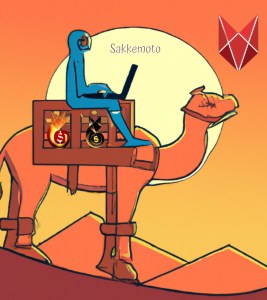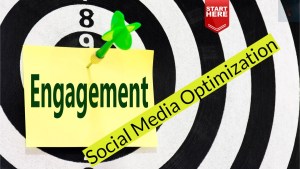Get More Done?So In a world that’s constantly in motion, where tasks seem to multiply and time appears to evaporate, mastering productivity becomes a defining factor in achieving your goals. The pursuit of excellence demands not only hard work but also a strategic approach to managing your time and resources.
Get More Done
So this blog is your comprehensive guide to unlocking the art of productivity, unveiling ten impactful strategies that promise to revolutionize the way you work, ultimately leading to greater accomplishments and a heightened sense of achievement. From mastering the art of prioritization to embracing mindfulness, we’ll explore an array of techniques designed to cater to different work styles and personal preferences.
1. The Power of Prioritization: A Strategic Framework
So the heart of productivity lies the art of prioritization. The first step is to discern what truly matters in the grand scheme of your goals. Employ techniques such as the Eisenhower Matrix, which classifies tasks based on their urgency and importance, to determine where to channel your energy.
Example: Imagine you’re a project manager with multiple tasks at hand. Using the Eisenhower Matrix, you quickly identify the tasks that demand your immediate attention and those that can wait, allowing you to allocate your resources more effectively.
2. The Pomodoro Technique: Focus in Intervals
The Pomodoro Technique introduces a rhythm of work and rest, capitalizing on your brain’s capacity for intense focus in short bursts. Work for 25 minutes and then take a 5-minute break. After four cycles, take a longer break. This approach ensures sustained attention while preventing burnout.
Example: Emily, a writer, uses the Pomodoro Technique to power through her writing tasks. She finds that dedicating focused intervals improves her productivity and creativity.
3. Time Blocking: Structuring Your Day
Time blocking involves allocating specific time blocks to different tasks.So this method enhances focus by preventing the urge to multitask and provides a structured framework for your daily activities.
Example: John, a marketing manager, employs time blocking to allocate dedicated periods for strategy planning, content creation, and meetings, ensuring he optimizes his productivity.
4. Taming the Email Beast: Controlled Communication
Emails can become an endless pit of distraction.So establish specific times to check and respond to emails, enabling you to retain control over your communication and allocate more time for focused work.
Example: Sarah, a project coordinator, sets aside two periods during her workday to address emails. This prevents her from being constantly pulled away from her main tasks.
5. Harnessing Technology Tools: Streamlining Workflow
Productivity apps and tools are designed to enhance your efficiency.So use platforms like Trello for task management, Evernote for note-taking, and Slack for streamlined communication to optimize your workflow.
Example: Mark, a digital artist, employs Trello to organize his design projects and communicate with clients, enabling him to manage his tasks effectively.
6. The Two-Minute Rule: Swift Action for Small Tasks
So If a task can be completed in two minutes or less, tackle it immediately. This rule prevents small tasks from accumulating and frees your mind from unnecessary clutter.
Example: Alex, a consultant, applies the two-minute rule to swiftly respond to client inquiries and complete minor administrative tasks, leaving him with more time for important projects.
7. Overcoming Procrastination: Breaking Tasks Down
Procrastination is the enemy of productivity. So overcome it by breaking tasks into smaller, manageable steps. Set deadlines for each step to maintain momentum.
Example: Julia, a student, breaks down her research paper into smaller milestones. This approach prevents her from feeling overwhelmed and motivates her to consistently make progress.
8. Creating a Distraction-Free Oasis: Optimal Environment
Distractions hinder productivity. Design a workspace that minimizes interruptions. So silence notifications, use website blockers, and consider noise-cancelling headphones to create an environment conducive to focused work.
Example: Michael, a software developer, ensures his workspace is distraction-free by turning off notifications and using noise-cancelling headphones. This allows him to code with unwavering concentration.
9. Setting SMART Goals: Strategic Aim
SMART goals are Specific, Measurable, Achievable, Relevant, and Time-bound.So establishing SMART goals provides clarity and direction, guiding your efforts toward meaningful accomplishments.
Example: Rachel, an entrepreneur, sets a SMART goal to increase her website traffic by 20% within the next three months. This specific and time-bound goal steers her marketing efforts effectively.
10. Mindfulness and Self-Care: Nurturing Your Well-Being
A tired mind hampers productivity. Prioritize self-care through exercise, meditation, and breaks. Mindfulness practices enhance focus, creativity, and overall well-being.
Example: David, a manager, dedicates 10 minutes each morning to mindfulness meditation. So this practice sets a positive tone for his day, improving his focus and productivity.
Conclusion Get More Done
So elevating your productivity is a transformative journey that amalgamates strategy, discipline, and intention. But integrating these ten strategies into your daily routine, you’re embarking on a path that leads to amplified accomplishments, increased satisfaction, and a heightened sense of fulfillment.So from mastering the art of prioritization to harnessing the potential of technology and fostering mindfulness, these techniques cater to diverse work styles and preferences. So you implement these practices, you’re embracing a journey of continuous improvement, one that propels you toward peak performance and empowers you to conquer the challenges of a fast-paced world.
business strategies online business productivity self improvement
Last modified: 13 February 2024











[…] to try a new approach to work. With practice and consistency, this technique can lead to increased productivity, better time management, and a more balanced work-life […]